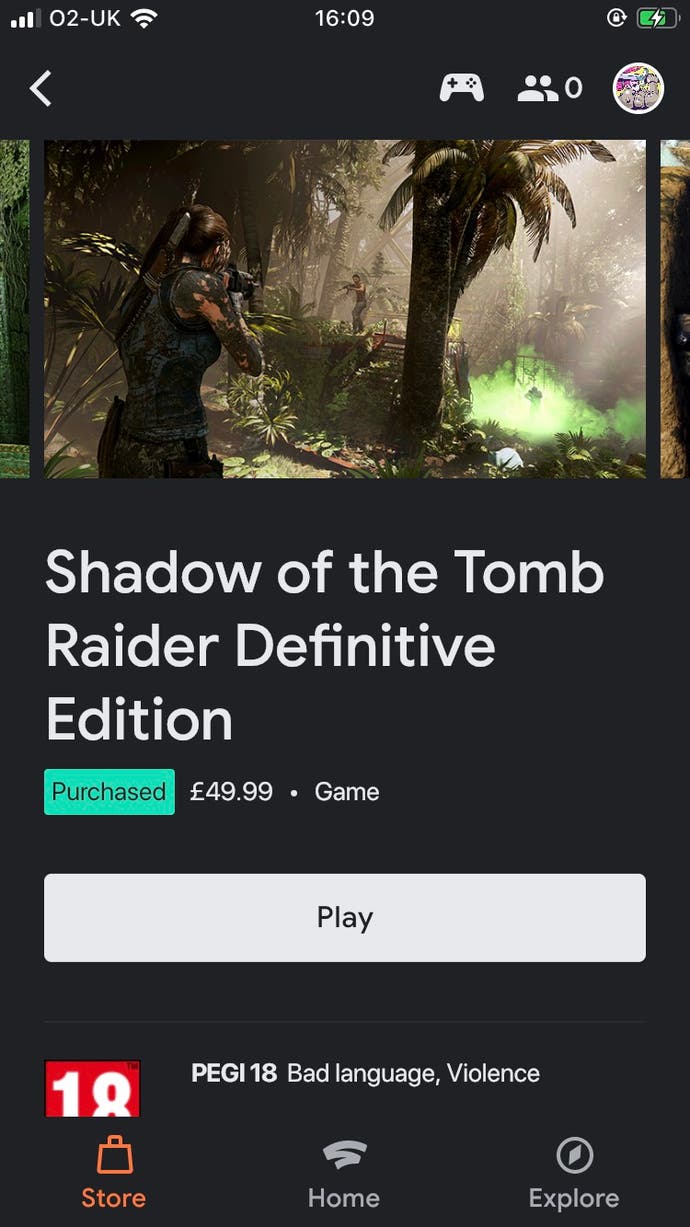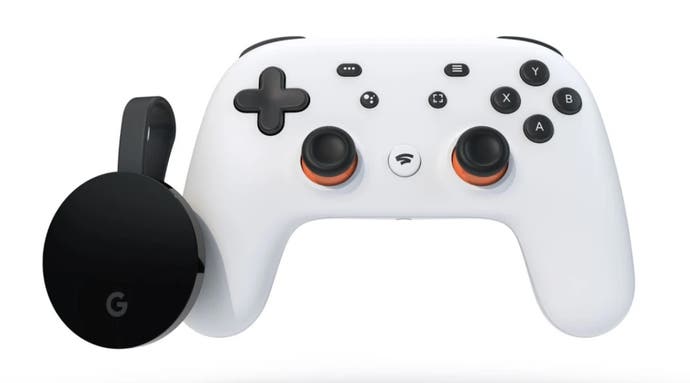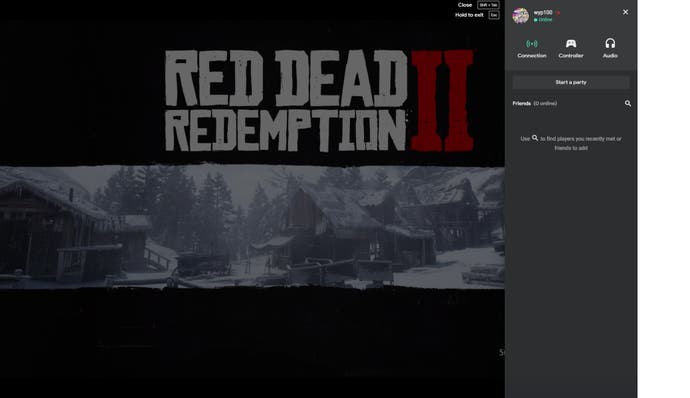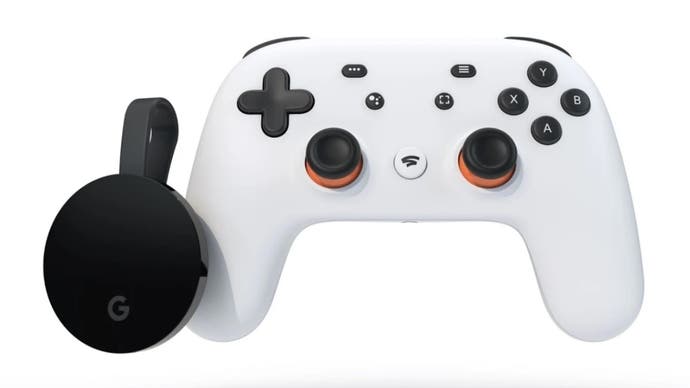Stadia's bizarre business model means it's swimming upstream at launch
Tough cloud.
I really want Google's Stadia to be the Netflix of video games. Google insists it isn't, and it's right. It's not. Not at launch, anyway, when you have to fork out £119 for a Founder's Edition to play. But it should be, and I think Google knows this too.
As it stands, Stadia's bizarre business model means the tech is swimming upstream at launch. Let's say you're convinced by the tech (more on that over at Digital Foundry), and fancy dipping in. What you want to do is pay nine quid a month for access to a library of games that work at the push of a button. The reality of Stadia at launch, unfortunately, is very different.

Not only do you have to pay £119 for the Founder's Edition, which gets you a Chromecast and a controller (which at first looks like the cheap third-party controller you made your younger sibling use when you were playing local multiplayer but after some time feels quite good in your hands), but you then have to pay for games on top. Then you go on the Stadia store, which you access from your smartphone only, and the true horror of Stadia's business model is laid bare.
Mortal Kombat 11 costs fifty quid. I can get NetherRealm's wonderful fighting game for under thirty quid from Amazon. Shadow of the Tomb Raider, which came out over a year ago, also costs fifty quid. That's under twenty quid on Amazon. Kine is twenty quid, whereas it's £16 on the Epic Games store. Red Dead Redemption 2 is £54.99 on Stadia. I can get Rockstar's cowboy epic from Amazon for just over £40.
These Stadia prices are, clearly, in-line with the cost of games on the likes of the PlayStation Store. But Stadia doesn't feel like it should be compared to the PlayStation Store. Or any other store for that matter. It feels like it should be compared to the likes of Sony's PlayStation Now, Microsoft's Game Pass and, more recently, Project xCloud - and compared to those subscriptions, Stadia is dead in the water. I wince at the thought of what happens to Stadia next year when Microsoft plugs xCloud into Game Pass.
Stadia Pro is the only real hope this project has of success, but at launch just two games are included with the subscription: fighting game Samurai Shodown and Bungie shooter Destiny 2, the latter of which is free-to-play on other platforms anyway. Google promises games will be added to Stadia Pro's library regularly, but it really needs to get its skates on if it wants to sell the sub when the three months that come free with the Founder's Edition run dry. As it stands, Stadia owners are paying a subscription to access the free-to-play Destiny 2. It makes no sense.

So, what we're faced with when Stadia comes out tomorrow, 19th November 2019, is a launch lineup of games, doubled last minute by a panicked Google, that you must pay premium prices for and that includes just one exclusive: Gylt. There are plenty of fantastic games here, such as Assassin's Creed Odyssey, Final Fantasy 15, Red Dead Redemption 2 and Football Manager 2020, but little to convince someone to invest in Stadia instead of a PS4 or an Xbox One. Stadia does not have a killer app.
Google will say Stadia should not be compared to the launch of a new console, but when you've got big triple-A, hardcore video games on your store day one, you must accept it will be so. And when it comes to console launches, first impressions are crucial. Just look at the Xbox One, which lost the console war before it fired its first salvo. Stadia has had a bit of a PR nightmare in the run up to launch, with a number of key features not making the release cut and some weird statements from staff. With a sea of skepticism already drowning Google's message, it's hard not to feel downbeat. I mean, there's no family sharing at launch, which means you have to buy the same game twice for you and your child's account!

And yet there is magic here. I was able to activate Red Dead Redemption 2 on my phone and a second later I was playing it. No downloads. No horrible updates. A week I ago I turned on my PS4 to play Call of Duty: Modern Warfare, but the update it triggered was so big it meant I had to play something else. Google Stadia makes all that - and it is a significant all that for any modern video game player - go away.
Stadia screen sharing is wonderful, too. I'm able to log into the Stadia website and, at a push of a button, play Mortal Kombat 11 (although, as a fighting game fan, playing Mortal Kombat 11 with even a frame of input delay gives me heart palpitations). But if the best thing you've got going for you at launch is no downloads and it works on a computer as well as a telly, then you have significant work to do. It's like Google solved the video game streaming tech problem, but couldn't work out how to solve the human problems that come with it.
Underneath it all is the unavoidable concern that Google may just turn Stadia off in a couple of years. Google executives insist this won't happen, that the company has invested too much money in Stadia and its tech for it to simply push a button and snuff our super expensive purchases out of existence. But Google has form when it comes to pulling the plug on its off-diary projects (Google Glass, anyone?). It's only natural to wonder if history will repeat itself.
Is there a point to Stadia right now? I'm not sure there is. Certainly I'm struggling to work out who it's for at launch. Stadia is great if you really want to play last year's Tomb Raider right now, but it feels niche because on Stadia, last year's Tomb Raider costs fifty quid.
Here's what I want Google Stadia to be: I'm on YouTube and I watch a great video showcasing a cool new game. I press the Stadia button and, assuming the game is in the subscription library, I'm playing it instantly, on my phone, on my computer, on my telly, on whatever I have to hand. This is the Stadia dream of the future, but it is not the Stadia reality in 2019.


















